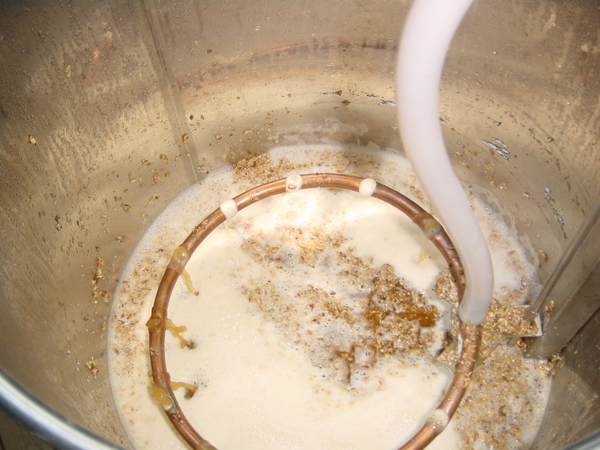Ok, I've been noticing a recurrent problem in my brew process:
After my mash, and after my sparge, I am sometimes getting too much wort, and I end up having to boil for 2 hours to get to my target level. After that, my OG is generally under where I want it. (not-so-hot efficiency). My efficiency is running about 60-65%. I have hit 70-75%, but its an exception if I do.
I'm puzzled about the efficiency issue. I do all grain with a HERMS system. I've tried different circulation rates, different mash lengths, I've tried stirring my mash and leaving it alone. I've tried different sparge rates, and I have played around with my sparge process on several different levels. A possible problem is that I pump my sparge water up hill with a March Pump, and if I'm not careful, my whole sparge takes less than 15 minutes. To that effect, I was careful on my last batch and did an hour long sparge. My efficiency was still less than 70%.
I need some expert ideas and thoughts here.
Thanks.
After my mash, and after my sparge, I am sometimes getting too much wort, and I end up having to boil for 2 hours to get to my target level. After that, my OG is generally under where I want it. (not-so-hot efficiency). My efficiency is running about 60-65%. I have hit 70-75%, but its an exception if I do.
I'm puzzled about the efficiency issue. I do all grain with a HERMS system. I've tried different circulation rates, different mash lengths, I've tried stirring my mash and leaving it alone. I've tried different sparge rates, and I have played around with my sparge process on several different levels. A possible problem is that I pump my sparge water up hill with a March Pump, and if I'm not careful, my whole sparge takes less than 15 minutes. To that effect, I was careful on my last batch and did an hour long sparge. My efficiency was still less than 70%.
I need some expert ideas and thoughts here.
Thanks.





